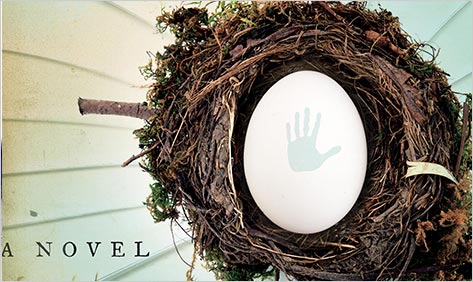MaddAddam

So much of the world created by Margaret Atwood in the trilogy she began in 2003 with Oryx and Crake, and which concludes with the release this week of her new novel, MaddAddam, is predicated on the sorts of jokes whose punch lines are not apparent to their tellers. The first book told us of how the calculating, possibly autistic Crake came to invent the ostensibly superior “Crakers,” a species whose genetic engineering displays his slightly idiosyncratic priorities. (Crake ensures that Crakers will feel no sexual jealousy, they will be herbivorous, and that they will repel bugs with the scent of citrus wafting from their pores.) The second volume, The Year of the Flood, gave us a vision of a world unraveling even as the tight corporate fist of the authoritarian CorpSeCorps tried to keep everyone in check, with new religions like God’s Gardeners inadequate to the challenges of chaos. The humor lies in the distance between the way the story is told and what you and I — not to mention the omniscient author — happen to know about it. Atwood’s gift is how she manages to execute this joke telling, largely staying on the right side of glib — though cutesy terms like “AnooYoo Spa” sometimes grate.
We already know, from The Handmaid’s Tale, that Atwood has a gift for satire-by-dystopia, but there in that novel a spare allotment of humor was weighted by terror. In MaddAddam, by contrast, Atwood is in full-on stand-up mode. There are gestures made toward satirizing certain preoccupations of modern society — consumerism and environmentalism in particular. But social critique is not really the driver of the book.
Instead, Atwood is more directly concerned, this time, with the process of storytelling. In MaddAddam, storytelling’s half truths and write-arounds are posed rather broadly as the jokes. And Atwood has good things to say about this. The Crakers, evidently, have not had the oral tradition programmed out of them. Like children at bedtime, they constantly ask Toby, this book’s protagonist, to tell them another story. Her frustration with the conventions of that process — the way her audience sometimes sings, their habit of feeding her a “fish” that is really quite amphibian beforehand — are the humorous accents on what are ultimately abstracted phrasings of war, death, and devastation. Toby’s version of the story of Oryx and Crake is, the reader of the previous books knows, a near-total lie: “Then one day Crake got rid of the chaos and the hurtful people to make Oryx happy, and to clear a safe place for you to live in.” Left out, for example, are all the innocent lives Crake destroyed to get there, and what exactly happened to Oryx.
If this resolutely ironic mode results in a lot of fun when, for example, the Crakers misunderstand “fuck” as being a sort of actual deity, it also means that the book is thin on plotting of its own. The dangers have largely passed; the apocalypse’s main function, at this point, is something to be remembered rather than survived. There are still a few predators lurking in the woods around Toby, Zeb, and other Gardener stragglers, but they are smaller in number. The small tribe is looking to extinguish them; whatever fear they inspire seems minimal. Instead the chapters are organized around smaller traumas and flashbacks, which give the book a meandering quality.
This less-than-a-page-turner result reveals the problem with trying to structure one’s book on an oral tradition. In some ways the ending to a story is always obvious; someone survived to tell and hear the tale. We all know that the victors are always the ones that get to write the history, so there’s never much concern about whether the Crakers are going to flourish. Without that essential element of suspense, these books leave you to live for observations like this:
Is that what writing amounts to? The voice your ghost would have, if it had a voice?
Which are poetic and beautiful and yet do not present the sort of compelling reading that a more traditionally plotted and characterized book might. The story feels light and impermanent, not the kind of explicit monomyth that might actually move its readers to action. And ultimately this levity becomes a questionable strategy, leaving the book’s mission slightly unclear: is it to be “great fun,” or is it proper satire?
Perhaps as a prophylactic to such criticisms, Atwood has said these books aren’t science fiction but rather speculative fiction. Of course, that’s a slightly snobby-sounding claim for which no less an eminence than Ursula K. Le Guin has taken her to task. But Atwood says she means no more by it than that she has linked the real world to many of the pieces of the book. As she puts it in her acknowledgements, “Although MaddAddam is a work of fiction, it does not include any technologies or bio-beings that do not already exist, are not under construction, or are not possible in theory.”
There is some haunting potential to that idea of novelists writing about speculative futures, voluntarily accepting limits on their own freedom of invention to make the worlds feel more like they could Actually Happen. But that promise is not one MaddAddam ever quite realizes. Atwood’s intelligence keeps intervening to remind us that stories are only stories, and never quite in line with the real thing. For the way she sets up that insight alone, MaddAddam — and its predecessors — are worth reading. But it makes one long for Atwood to have focused her intellect more sharply on the world whose future she says she’s speculating about.